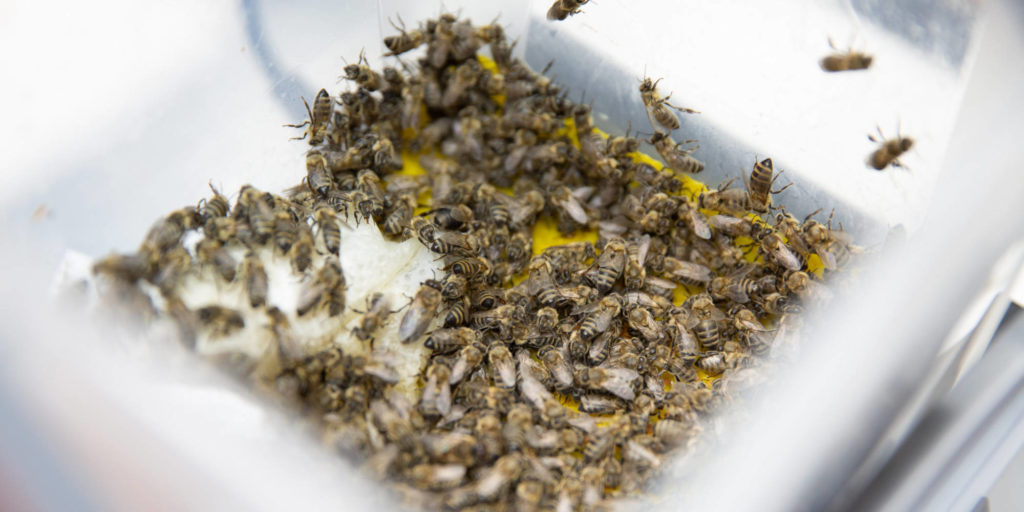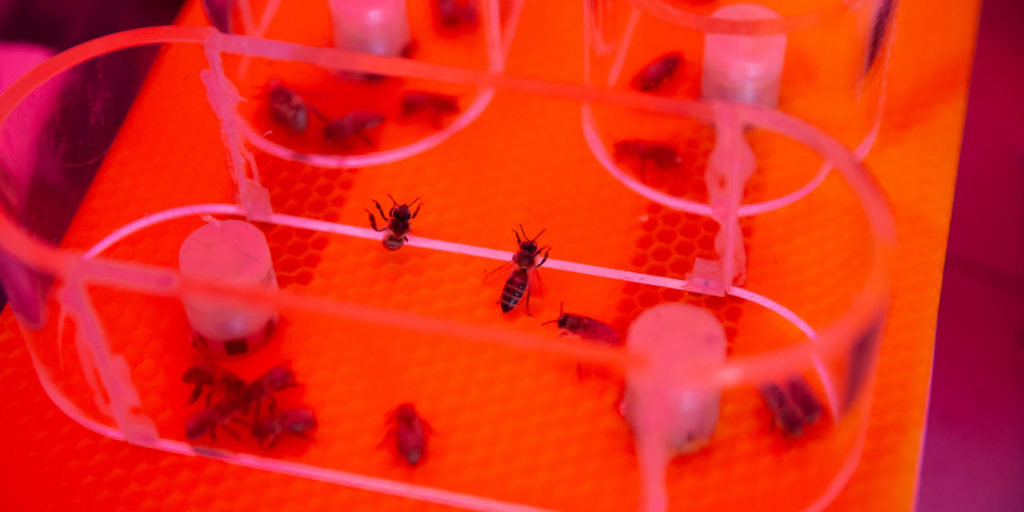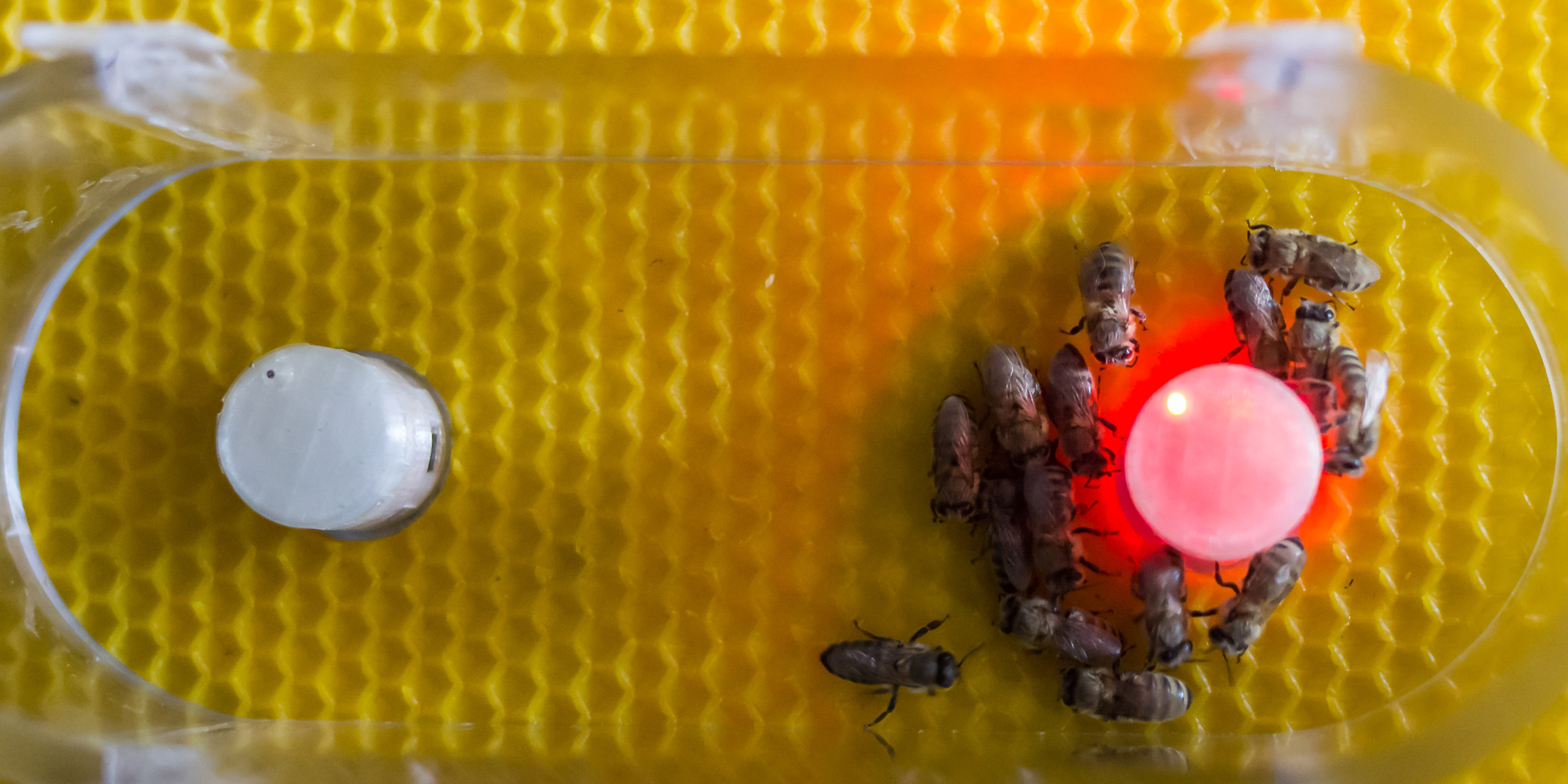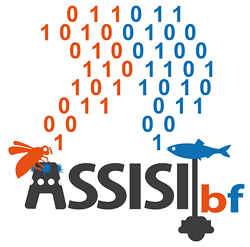Bees, fish and robots solve difficult network problems together
Networks are ubiquitous in our world today and are growing and complexifying at a global scale, from traffic and logistics to social networks and the “Internet of Things.” Optimal design of such networks is a difficult task, exploding in complexity with network size and connectivity. Thus, smart heuristics are a key technology – using randomized guessing as a form of provoked error is central to their functionality.

In ASSISIbf we aim for a radically different approach towards network optimization of this kind: We use “fuzzy” swarms of honeybees and fish, in association with autonomous robot swarms. These novel bio-hybrid “computational symbioses” efficiently search for optimal, or near-optimal, network configurations.

With large populations of animals we hope that future bio-hybrid applications will be able to solve global-scale network problems in a shorter time than today’s computer algorithms, exploiting the parallelism of organismic swarm computation.
Credits:
EU-FP7 Project no. 601074. Objective ICT-2011.9.10: Fundamentals
of Collective Adaptive Systems – FoCAS, Duration: 5.5 years;
Start: 1st of February 2013, Budget: 6 Million Euro,
Project website: http://assisi-project.eu/



